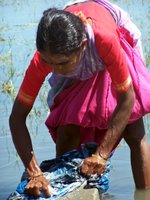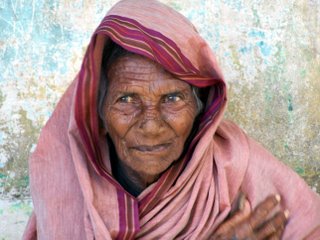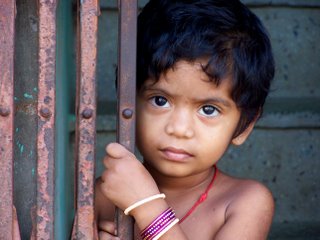Milkweed

Milkweed.
I should have read a little Harry Potter in between Nectar in a Sieve and this. Unfortunately, I went strait from one devastating heartbreaker to another. Both were beautiful and powerful. I'm glad I read them both. I just wish I hadn't read them back to back. I was finishing Milkweed as I rode on the bus to Manti, and found myself crying. This was a restraint, as my heart was sobbing. Anybody seen Grave of the Fireflies and Nobody Knows? How about Schindler's List and Passion of the Christ? Yeah. It's like watching two of them back to back. I'm drained, to say the least.
Anyway, the book was well done. It took place in Warsaw, during WWII - the Nazi occupation of Poland. The narrator is an orphan gypsy kid who calls himself "Stopthief" until another street urchin christens him "Misha." He's a clever little thief who gets caught up with the Jewish people and is moved to the ghettos. He becomes a smuggler, breaking through the ghetto's brick wall at night to steal food from the other side of the city, which he calls, "heaven." He's got a tender heart, causing him to take other people under his wing, bringing them food, and an innocence which causes him to admire the Nazi's and want to grow up to be one, because of their shiny black boots. The story begins with him as a child, and follows him through to old age.
Milkweed was written by Jerry Spinelli, who also wrote Maniac Magee and Stargirl, both of which I enjoyed a great deal - though I recommend Maniac Magee strongly, and Stargirl with reservations. Both, however, were what I'd call young adult fiction. I was expecting the same here, and I guess if you're going to tell young adults about the horrors of the ghetto life in Warsaw during WWII, then you might do it this way - but it was far more heart-wrenching, depressing, and disturbing than I'd expected from a young adult book.
Surprising in its violence. Not only by way of the Nazi soldiers to the people in the Ghetto, but also between Misha and his peers. There was a violence to their life that they accepted as natural, though it felt so unnatural for children. I was reminded a little bit of Ender's Game and also Lord of the Flies. Where children become unnaturally world-wise and violent. And yet, we realize that we have set the example, and they are simply adapting, as all children do.
The combined effect of both books, however, was to make me feel horror at the atrocities in the world, which still exist, and to feel like I have to do more than I'm currently doing. I keep thinking about the fact that starvation and desperation are real, and they are the constant companion far too often for people in this world. It's sometimes hard to remember that - not just as an abstract concept - but as concretely as if you were facing it yourself.
I am haunted by the memory of all the people I haven't done more for. I know that I can't help everyone. I know that. And yet, I remember holding this baby in Panama. A baby who should have been walking by now, but who couldn't walk or crawl, due to malnutrition. I held her listless, frail body to my chest and I could feel her ragged breathing both in my hand which covered her tiny back, and echoing through my own chest, pressed to hers. I should have taken her to a doctor right then. I could have paid the bills. I'm sure that I could have afforded them. Why didn't I? I have no answer to that.
I know there's a God. And it isn't his failing that causes these tragedies...it's ours. Nevertheless, I ache at the unfairness of it all.




